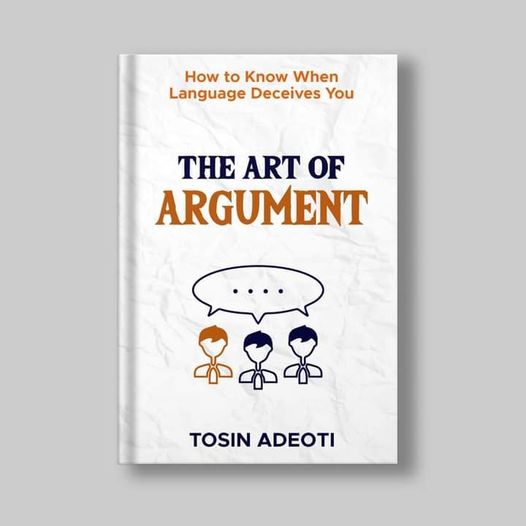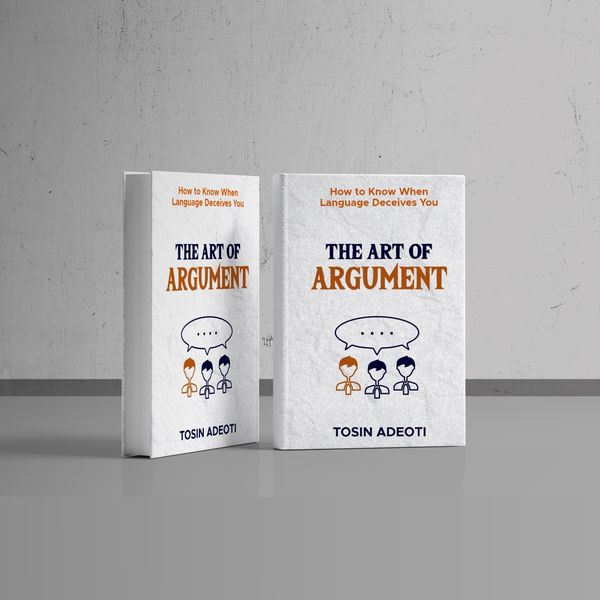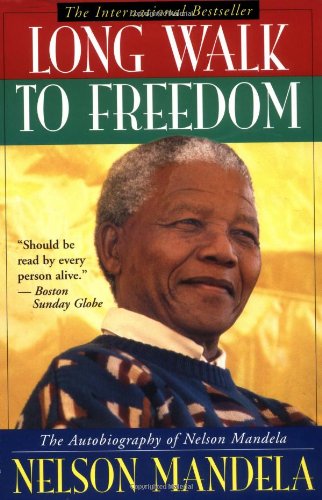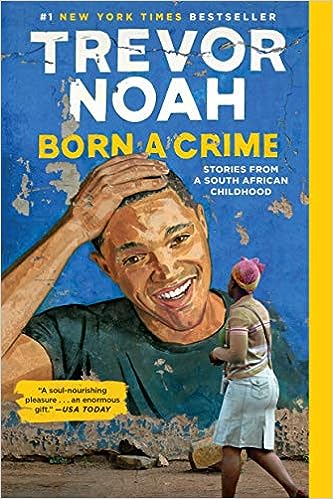Written by Kadibia
When the Americans established what would turn out to be one of the most prominent intelligence agencies in the world; they inscribed an interesting quotation on the walls of their headquarters. Just yards away from the CIA’s memorial wall venerating agents who died in the line of duty is the biblical quote–‘Ye shall know the truth and the truth will make you free.’
That quotation is significant because truth and all that it symbolizes is crucial, especially in a world where we are constantly assailed by a persistent deluge of information from various sources– the internet, news outlets, and the wide array of social media platforms. Disinformation, half-truths, and conspiracy theories are rife and often dished with the most inciting rhetoric. In such a world, the ability to sieve through the melee and identify the truth is an important skill, one that is fast dying but one that is taught in The Art of Argument, a nonfiction book written by the project manager, entrepreneur, and versatile reader–Tosin Adeoti.
To do this, the author begins his book by addressing the prevalent albeit negative connotation of the word argument. While those in conservative climes are constantly told that arguing is a bad habit pursued by needlessly obstinate people, its definition points to something different. In fact, it is the process of reasoning, conversation, and dissemination of information; in other words, the argument is how social animals, such as we are, arrive at the truth.
Following this clarification, the book then branches out into four major parts.
The first part- Argumentation and Logic addresses the role of critical thinking in argument as well as the history and fundamentals of logic. We learn that although it is instinctive to associate the concept of logic with Greeks, other nations, some from Africa, have contributed their fair share to the development of the logical process. We also discover that while having an argument is reasoning and conversation, ‘In logic, when a set of premises/prepositions and a conclusion are put together they form an argument..’ , Hence, the key to differentiating which argument is valid or which is a fallacy lies in carefully studying the premise, identifying their relationship with each other, and determining if the conclusion made aligns with what is called the truth-value of the premise.
From here we move to the second part of the book which explores the differences between Good and Bad Arguments and the various forms of fallacies, including the mother of all fallacies- assumption. The author makes us understand that a wise person is not just one who can spot fallacies but one who also argues logically. Logical arguments, in this context, are divided into two forms– formal logic which fails to take every information into consideration, and informal logic which is more accommodating of circumstance and context.
In the third part of the book, the author addresses various concepts of logical arguments such as the conditional argument where the word ‘IF’ plays a dominant role, the foundations of rhetoric comprising of the ethos, pathos, and logos trinity, and the most poignant among them–the nature of paradoxes, which when simplistically defined is a scenario that seems to apply sound reasoning but somehow still lead to a contradiction. The author treats us to several famous paradoxes throughout the book, the most interesting of which is The Crocodile Dilemma, in which a mother saves the life of her child from a talking, sophist crocodile by placing him in the throes of an unresolvable paradox.
But perhaps the most important concept this part of the book addresses is the issue of bias, especially our own bias. As we would find out, bias can be implicit, that is, unconscious, or worse still it could be explicit- deliberately utilized ‘in response to safety, lifestyle, or acceptable status, no matter if they are true or false.’ Of all forms of bias, explicit bias can be the most tricky to overcome because in most cases the person holding this bias isn’t necessarily interested in truth.
Finally, the author takes us to what can be said to be the crux of the book, which is how we can go about Accessing the Correctness of arguments. In this vein, the first two chapters of this part are especially devoted to divining truth and determining the validity of arguments using a series of comprehensive tests. Most importantly, we are made to realize that while argumentation is important and even necessary, it is not without its limitations. ‘It is difficult to expand abstract thoughts in manual ways’ the author points out, and ultimately, the greatest limitation to logic is the ‘humans who thought it up in the first place.’ Hence, while we should aspire to seek truth and dissect every piece of information we encounter as intelligent humans, we want to take into cognizance that this pursuit will not always be met with complete success all the time.
Overall, Adeoti’s The Art of Argument is a detailed, well-researched book that is masterfully written by a scientific mind. A perusal of this book will make you privy to knowledge, to insights that you may not have thought possible. You will learn, not only about the principles of logic but also about its role in arguments and fact-finding. More importantly, you will learn to recognize which arguments are valid and which opinions are worth holding onto. And in the modern world with its constant barrage of information, possessing an argumentative mind is the surest path to the truth.




